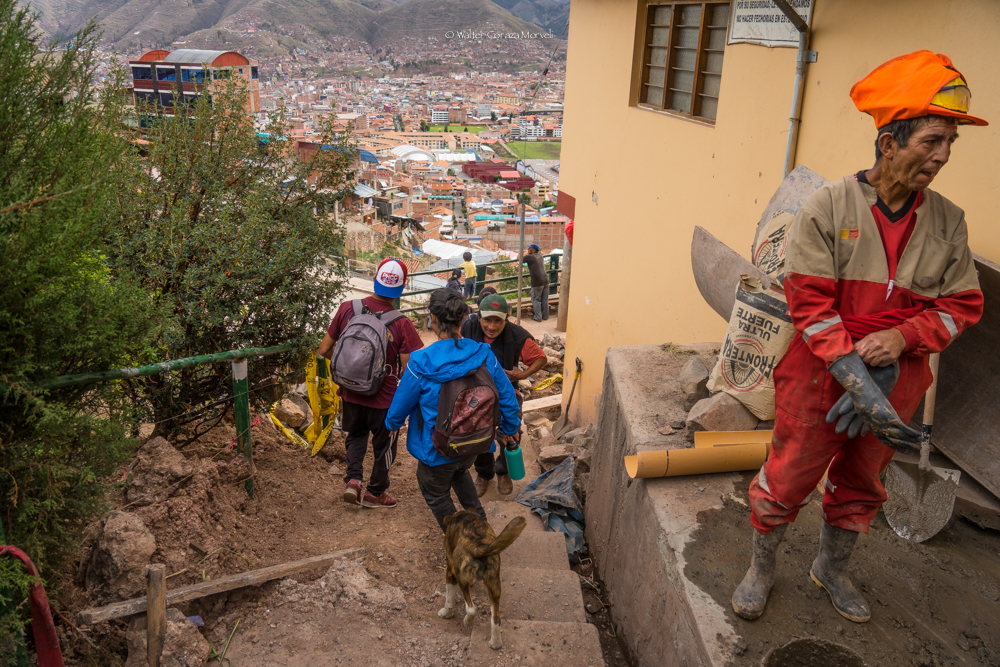Cachuelo, a Word and a Way of LIfe

There are words that you seldom hear and almost never use. Words show a person’s place in the world and, when you run into them they may open up an entire world to you.
This morning one such slammed into me.It is cachuelo.
I first heard the word a year ago and today, while riding to town in a taxi, I heard it again.
The driver, a sunny man in a starched white shirt and jeans, invited me to visit him at his main job in a restaurant. He said that he worked hard there and on the side drove a cab in order to set aside money to build a pair of apartments by an important outlook to rent to tourists and others who wished to stay in Cusco for a period of time.
“The restaurant is my main job,” he said. “Driving a taxi is my cachuelo. You know, with the economy the way it is and the needs of my wife and children I need another job. One just does not pay enough.”

That is the cachuelo, a second job to help make ends meet. In Cusco, and by extension in Peru, the driver argued the salaries paid for a single job are not adequate.

Of course, the idea of adequacy is undercut by his argument to the need to build apartments. The driver is not just getting along, he is working two jobs in order to improve his economic status for him and his family.
But in the notion of inadequate pay he does have a point. The minimum wage in Peru is relatively low, around 750$ per month, about 200$ US. Even this can be hard for many people to obtain. As a result, at least in Cusco, there is a concept of needing a second job to make ends meet. It is something normal and expected among a, probably, substantial sector of the population.
Out of curiosity, I decided to look in the dictionary of the Royal Spanish Academy to see if it had the word and what meaning it might give it. To be honest, I was surprised to find it, and even more surprised when the dictionary recognized a specifically Peruvian meaning. It said “an occasional, poorly paid job.”
In Cusco, the neither the occasionality not the poor remuneration seem the defining characteristics. Instead, the key notion is that it is an additional job on the side of one’s main work.
The word suggests a little hook up, a connection, that pays. It comes from a root word that means horn, cacho, with a diminutive and somewhat derogatory suffix, -uelo. Despite that origin, the word fits into a whole world in Cusco where hook-ups, connections are what enable ordinary people to find work and, indeed, to survive. They are manifest in the importance of friendship groups, and just basic ties, that often become ritualized in co-godparent relationships and in getting jurqado, that is ritually obliged to help sponsor a feast. Guaranteeing the value of those ties is an ongoing quest in Cusco.
Another interesting aspect of this word, cacho from which cachuelo is derived, is that when made a verb, cachar, it means to have sex.
So, while I might focus on the occasional job or the second job aspect that the Royal Spanish Academy gives weight to, instead the basic meaning is one of surviving and building success through social ties. They enable you to get hooked up with something.
As the taxi driver said, when we were arriving at my destination, “you never know when you will need a friend and you find them in the most interesting places. The only way I can find you is if you come to my restaurant. Please do and then we can be friends.”




